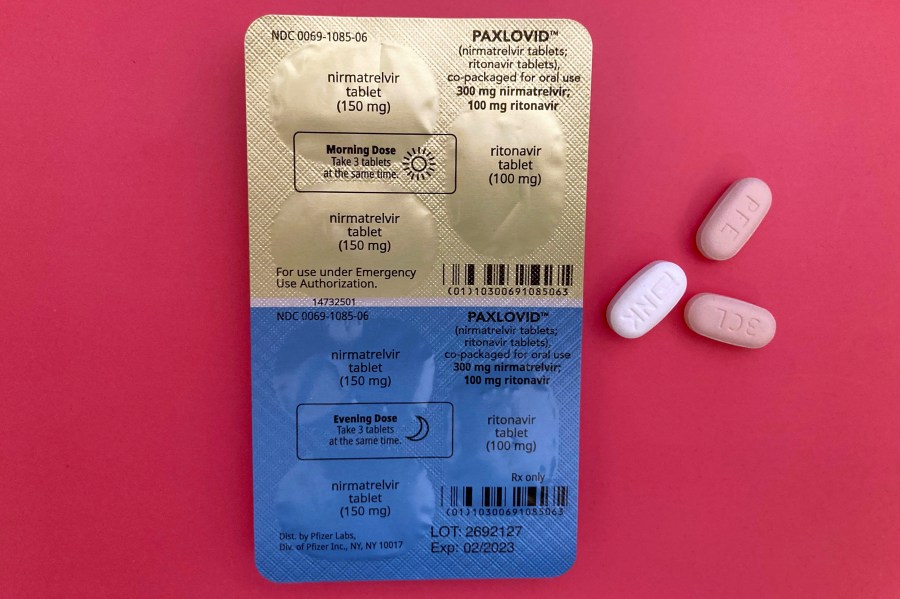A small study published Monday found that the COVID-19 antiviral treatment Paxlovid may have use as a treatment for long COVID when administered outside of an infection.
Administration of Paxlovid during a SARS-CoV-2 infection has previously been linked to a lower risk of developing long COVID symptoms. But a study published in the Nature science journal suggests taking the treatment may have benefits for people with long COVID when they’re not experiencing an active infection.
Paxlovid is recommended for use within five days of COVID-19 symptoms when someone tests positive for the virus. The treatment is a round of two drugs — two nirmatrelvir pills and one ritonavir pill — that are taken twice daily for five days.
The patient-led research collaborative that worked on the study looked at 13 people diagnosed with long COVID who took rounds of Paxlovid lasting longer than five days. The participants had infections stemming from COVID-19 variants like the original strain from 2020, the delta variant and the omicron variant.
The participants took Paxlovid from seven-and-a-half days to 30 days. The group included people who had COVID-19 infections between 2020 to 2023.
Of the 13 participants, seven said they experienced an improvement in their long COVID symptoms and five of those participants said they experienced sustained improvement.
One 56-year-old male participant who was infected in 2020 with the original strain of COVID-19 first completed a standard five-day course of Paxlovid in September 2022 with no improvement in his long COVID symptoms.
But after taking an extended 15-day course of Paxlovid in December, the participant reported improvements in his neurocognitive symptoms. One week after completing his treatment, he reported an “almost complete resolution” of his symptoms.
The authors of the study acknowledged the limitations of their analysis.
“First, while this study is large for a case series, it is still only reporting on the experiences of 13 individuals, who may or may not be representative of the experiences of all patients with Long COVID,” they wrote. They also noted that the participants were all people with enough “technological savvy to communicate over the internet or phone” and spoke English proficiently.
The study was also self-reported by patients, leaving room for recall bias or fatigue bias. But the study authors also pointed to its strengths, including its novelty and capture of data that may have been missed by traditional medical records.
“While the case series findings are heterogeneous, we describe the use of long courses of Paxlovid as a potentially promising pharmaceutical treatment to support at least some people with Long COVID,” wrote the researchers. “These cases provide strong rationale for the ongoing study of antivirals for Long COVID to determine if, when, and how they should be used in this patient population.”
One of the authors, Micharl Perluso, reported one conflict of interest as he has served as a consultant for Gilead Sciences and AstraZeneca, competitors of Paxlovid’s manufacturer Pfizer.

